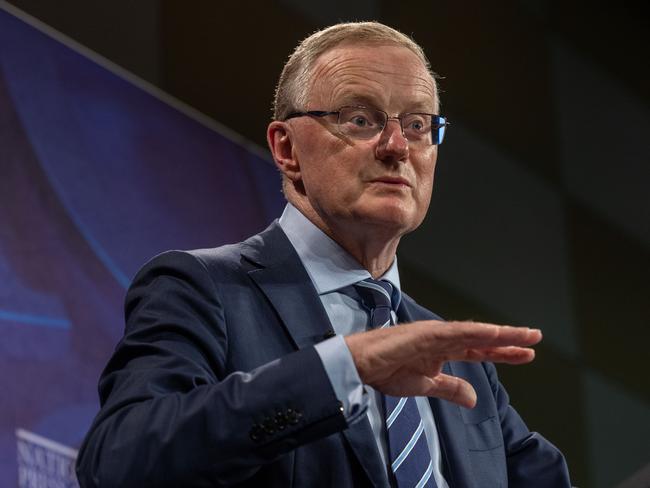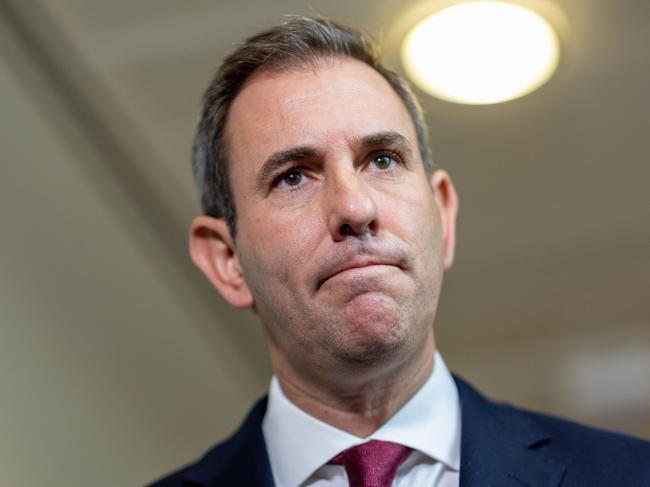International Monetary Fund warns interest rates need to stay higher for longer
With inflation still out of control, the International Monetary Fund has sounded a dire warning about the global economy. See what could follow the cost of living crisis.
World
Don't miss out on the headlines from World. Followed categories will be added to My News.
Cash-strapped households are facing more hip-pocket pain, with the International Monetary Fund declaring interest rates must remain higher for longer to bring inflation under control.
In a stark warning issued on Tuesday night, the top financial agency said the economy was entering a “perilous phase” as growth slowed but inflation remained “much stickier than anticipated even a few months ago”.
Treasurer Jim Chalmers will on Thursday join the IMF’s spring meetings in Washington DC with Reserve Bank Governor Philip Lowe, who last week paused a 10-month run of interest rate hikes to assess the economy “in an environment of considerable uncertainty”.
But they will be told central banks cannot shirk their mission now, with inflation still yet to peak in parts of the world.

“Both output and inflation estimates have been revised upwards for the past two quarters, suggesting stronger-than-expected demand, which may require monetary policy to tighten further or to stay tighter for longer,” economic counsellor Pierre-Olivier Gourinchas said.
“Any expectation that central banks will abandon the fight against inflation would have the opposite effect: lowering yields, supporting activity beyond what is warranted, and complicating the task of central banks.”
Dr Lowe foreshadowed last week that further rate rises “may well be needed” after 10 increases totalling 3.5 percentage points since May.
The IMF’s latest biannual outlook put inflation at 5.3 per cent in Australia this year – up from its October forecast of 4.8 per cent – while it slashed its growth prediction to 1.6 per cent in 2023 and 1.7 per cent in 2024.
Dr Chalmers, speaking prior to his trip, said next month’s budget would prioritise “security in uncertain times”.

“Our job is to strike the right balance between dealing with our immediate challenges, preparing for the future and safeguarding our economy against global risks,” he said.
Mr Gourinchas urged governments to limit spending, saying that “cooling off economic activity” would drive down inflation while building “much needed fiscal buffers”.
He said there were green shoots in the global economy, with China rebounding strongly from its Covid lockdowns, supply chain disruptions unwinding and energy dislocations receding.
“Below the surface, however, turbulence is building, and the situation is quite fragile, as the recent bout of banking instability reminded us,” he said.
While the world was not at the point of a “systemic financial crisis”, Mr Gourinchas said more tremors – after the recent collapse of three US regional banks and the takeover of Credit Suisse – were “bound to occur” and action was needed to stop “a full-blown financial crisis”.





